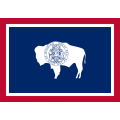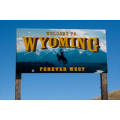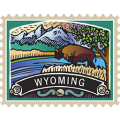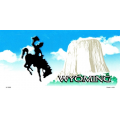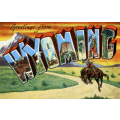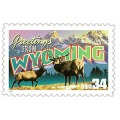More than 30 percent of Wyoming’s population will be over the age of 60 by 2030. This illustrates the pressing need to expand the state’s healthcare workforce. Nurses form the largest group of healthcare professionals in the state, and they are in high demand. Wyoming is home to over 3,200 certified nursing assistants (CNAs), 700 licensed practical nurses (LPNs), and 4,500 registered nurses (RNs). The state’s nursing workforce will grow at a significantly faster rate than overall employment for the near future.
Overview of nursing roles and programs
Wyoming
We've organized a comprehensive list of Wyoming nursing schools. Below you'll find information on specific nursing programs such as LPN certificates and ADN, BSN, and MSN degrees.
Graduate studies are becoming increasingly common in a number of professional fields. One excellent example is nursing, where more and more professionals are pursuing a master of science in nursing (MSN). This graduate degree enables registered nurses (RNs) to specialize in a particular subfield of nursing. MSN-holders are qualified to work in advanced fields like nursing education, nursing research, and nursing management. They can also choose to enter the rewarding world of advanced practice registered nursing (APRN).
Higher education has become the norm in the nursing industry. Employers prefer candidates with exposure to both the theoretical and practical aspects of nursing, as well as a foundation of general knowledge. For this reason, the bachelor of science in nursing (BSN) program is one of the most popular education pathways for today’s aspiring registered nurses (RNs).
Overview of the BSN program
Aspiring registered nurses (RNs) in Wyoming can choose to pursue either a two-year associate’s degree in nursing (ADN) or a four-year bachelor of science in nursing (BSN). Both pathways prepare students for the NCLEX-RN national licensure exam, yet each offers certain advantages and disadvantages. A primary advantage of the shorter ADN program is that it offers a faster route to nursing employment.
ADN programs in Wyoming
Licensed practical nurses (LPNs) are an essential part of the healthcare industry. They work under the supervision of registered nurses (RNs) to handle tasks such as measuring a patient’s blood pressure, documenting a patient’s vitals, giving injections, and dressing wounds. LPNs work in a variety of healthcare settings such as hospitals, nursing homes, extended care facilities, physician’s offices, and private homes.
Overview of LPN programs
Nursing school can be an expensive endeavor. Tuition is by far the single largest cost component of nursing education. In addition to tuition, students must bear the costs of registration fees, books and supplies, room and board, and living expenses. Fortunately, a number of Wyoming schools offer quality nursing education at an affordable price, whether you are interested in becoming a certified nursing assistant (CNA), licensed practical nurse (LPN), or registered nurse (RN).
Professional fields like nursing require specialized education. Nursing programs feature hands-on training that provides the skills needed for success, even in a challenging healthcare environment. The Department of Veterans Affairs is one of the nation’s top employers of nurses. Not only are they looking for superior technical skills, but they also seek compassionate nurses that can handle the emotional aspects of healthcare. Many private school programs help nursing students develop robust skills in areas like teamwork, communication, and of course medical knowledge.
Public colleges and universities operate under the supervision of the state government, and they rely heavily upon state funding. This often translates to significantly lower tuition, particularly for state residents. Wyoming’s nursing students have several high-quality public schools from which to choose.
Overview of nursing programs
More than 30 percent of Wyoming’s population will be over the age of 60 by 2030. This illustrates the pressing need to expand the state’s healthcare workforce. Nurses form the largest group of healthcare professionals in the state, and they are in high demand. Wyoming is home to over 3,200 certified nursing assistants (CNAs), 700 licensed practical nurses (LPNs), and 4,500 registered nurses (RNs). The state’s nursing workforce will grow at a significantly faster rate than overall employment for the near future.
Overview of nursing roles and programs

